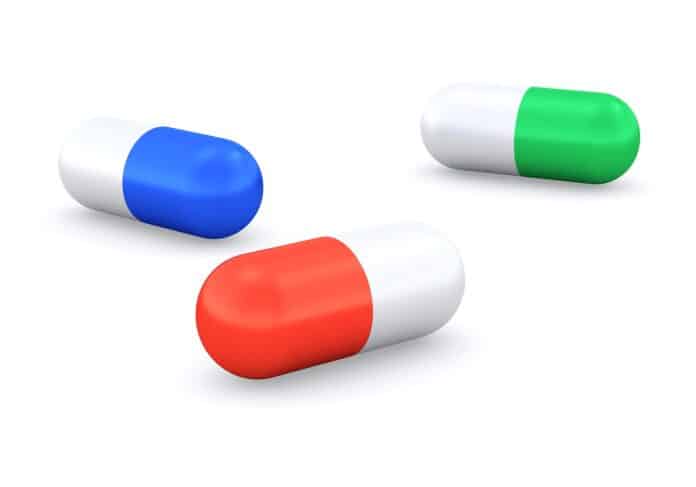Last Updated on March 18, 2023 by The Health Master
Side effects of Antibiotics
Antibiotics are the most common antimicrobial substances that are actively used to fight bacteria by killing or suppressing their growth.
However, with the advent of technology and easy access to information, many people are now commonly taking these drugs without a proper prescription, which has led to a rise in the number of cases related to antimicrobial resistance and side effects.
Overuse or unnecessary consumption of antibiotics can cause serious health issues such as:
Gut flora Upset:
Bacteria that help in maintaining a balance in the gut and ensure proper digestion and immunity are known as gut flora.
Consumption or overuse of antibiotics can cause an imbalance in the gut and wipe out a significant proportion of these bacteria, which can result in several health issues.
Diarrhoea:
Many people often resort to antibiotics to treat common colds or flu in children as well as adults, which often results in several unwanted side effects.
As per a study by the CDC (Centers for Disease Control and Prevention), children that are administered antibiotics routinely for upper respiratory infections like cough and cold, etc. are more susceptible to bacterial antibiotic-resistant strains known as C. diff.
C. diff is found in the human gut and can cause severe diarrhoea. This bacteria has led to thousands of deaths among children and adults every year.
Lethal side effects like anaphylaxis, Steven Johnson syndrome, hepatotoxicity, nephrotoxicity, and arrhythmias can also occur.
Fungal infections:
While antibiotics are designed to kill harmful bacteria, however, they often kill good bacteria too, which helps protect people from fungal infections.
Due to this, people who consume antibiotics often fall prey to fungal infections in certain parts of their bodies, like the mouth, throat, and vagina.
Drug interactions:
Antibiotics sometimes also interact with other medications and make them less effective against a disease. These combinations can also worsen the side effects of the other drug or antibiotics.
Certain antibiotics induce liver enzymes, which increase or decrease the potency of a few antibiotics, cardiac drugs, antiepileptic drugs, and combination drugs.
Antimicrobial Resistance:
Bacteria try to change their structure or release certain enzymes in order to survive when antibiotics are constantly used, due to which resistance develops to the antibiotics that were previously used to treat patients.
For example, the same antibiotic that was previously used for typhoid, fever, and respiratory infections will no longer be effective to treat the same disease. eg- Earlier, diseases like tuberculosis used to require only 3–4 drugs for 6 months, but now that there is resistance, 9–11 drugs are required for 1.5–2 years.
What should you keep in mind while consuming antibiotics?
There are certain measures that you should keep in mind while consuming antibiotics:
1. The prescribed amount along with appropriate results can lead to better effectiveness of antibiotics and can help one feel better within a few days.
It is always advisable to speak to one’s healthcare provider instead of self-medication to ensure proper treatment.
2. All infections do not require antibiotics; they may be self-limiting, such as a mild cold, cough, or fever lasting 1 or 2 days, and should not be treated with antibiotics unless absolutely necessary.
Antibiotics may not be required for simple diarrhea, stomach upset, or loose stools unless it is complicated by bacterial infection.
Dengue is also a viral infection that does not require antibiotics. Only symptomatic treatments necessitate the preceding steps; control of fever and hydration are required.
Relevant cultures of blood, stool, urine, or pus, depending on the case, should be sent before starting antibiotics.
3. To reduce the harmful effects of antibiotics, it is advisable that people who are prone to infections, such as the elderly, diabetic patients on immunosuppression, and the general public, should protect themselves by wearing masks, practicing good hand hygiene, and using hand sanitizer.
4. Vaccination can also prevent infections.
By By Dr. Bindumathi P L
The author is a Senior Consultant – Internal Medicine, Aster CMI Hospital, Bangalore.
The article is for informational purposes only. Please consult medical experts and health professionals before starting any therapy, medication and/or remedy. Views expressed are personal and do not reflect the official position of The Health Master.
Is the H3N2 virus dangerous for your child? Here is the answer
Reusable water bottles have 40,000 times more bacteria than a toilet seat: US Study
Difference between branded and generic medicines
The Power of Sleep: Heal yourself with this natural and free medicine
Milk and Plant-Based Milk alternatives: Must Know
This new pill cuts cholesterol, heart attacks: Study
IMA warning: Antibiotics for seasonal cold, cough will not work due this reason
Excessive gym / fitness supplements can put you in ICU
‘E-bandage’ developed which speeds healing by 30%
Back Pain / Spine Pain: What to do for relief, must read
Painkiller Side Effects: Must take advice before eating
For informative videos on consumer awareness, click on the below YouTube icon:
For informative videos by The Health Master, click on the below YouTube icon:
For informative videos on Medical Store / Pharmacy, click on the below YouTube icon:
For informative videos on the news regarding Pharma / Medical Devices / Cosmetics / Homoeopathy etc., click on the below YouTube icon:
For informative videos on consumer awareness, click on the below YouTube icon:









